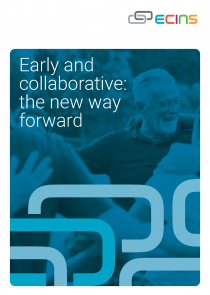The Birmingham Children’s Partnership is a collaboration between the Birmingham City Council, Birmingham Children’s Trust, the National Health Service of England, and local nonprofit organisations. The Partnership is committed to transforming the system of family services and support to improve the lives and outcomes of children and families and establish a practice of early intervention.
Situation:
- With a population of nearly 1.2 million people, 42% of children in Birmingham City grow up in poverty, and 1 in 5 households suffers the effects of mental illness, domestic abuse or substance misuse.
- The overwhelming need of these families is felt at every level – from food, fuel and basic necessities, to employment, counseling and educational concerns.
- The pandemic exacerbated the demand for support, creating an increase in the number of families requiring help, as well as the breadth of the assistance each needed.
- The Birmingham Children’s Partnership was formed in order to develop a system that would more comprehensively and compassionately manage these families’ needs, while proactively creating a model of early intervention to minimize problems that statistically become more complicated and more expensive to solve.
Challenges:
- The Birmingham Children’s Partnership was fully funded in April 2020, as the COVID-19 pandemic began to escalate creating more need. The goal was to deploy the organisation’s support services within 6 weeks.
- Prior to the partnership, those supporting vulnerable children and families in Birmingham – family support professionals, mental health workers, schools, police authorities, human service organisations – were working in silos, unable to easily share information about families and coordinate their support efforts.
- Without a streamlined support network of collaboration, families could not easily communicate all of their needs, nor were the proper authorities able to identify vulnerable children or families in a timely manner.
- When party to domestic violence at home, children’s emotional and mental wellbeings were often overlooked when their situation could not be quickly and properly communicated to their schools and other care networks by police.
Solutions:
- The partnership developed a 5-point strategy which included significantly increasing the capacity of help for families, connecting vulnerable families to the support, developing personal relationships between professionals and working with children and young people to develop a compelling vision, all while decreasing the amount of bureaucracy needed to fulfill the mission.
- While exploring case management systems, Birmingham Children’s Partnership was referred to ECINS and quickly discovered that the bespoke ECINS solution would benefit all aspects of their 5-point strategy, and allow them to easily scale their programs without incurring additional technology costs.
- The ECINS Referral Management module is utilised to funnel vulnerable families into the Birmingham Children’s Partnership support system via an encrypted online referral form that is both deployed on the Birmingham City Council’s website, and shared with support professionals and organisations within the partnership.
- A single record of truth and a support plan is created for each family in the ECINS Case Management module and shared with appropriate authorities and stakeholders within the partnership’s network to enable wraparound support to be deployed.
- The collaborative features of the ECINS solution has allowed the Birmingham Children’s Partnership to quickly grow its foundation of support, adding users from various organisations who are all able to communicate with each about families’ needs, send alerts about concerns, and provide for each family’s unique situation.
Outcomes:
- Approximately 1,000 families per month are receiving support through the Birmingham Children’s Partnership.
- From April to October 2021, 2,888 families (equal to 7,690 individuals) were referred into the ECINS case management system specifically requesting early help assessments, which enables the support network to provide more proactive early intervention and assistance.
- Leveraging ECINS’ robust capabilities, the Birmingham Children’s Partnership has discovered additional ways to use the system including a notification system that allows police to communicate with schools when a student has witnessed a violent incident at home, proactively building awareness of potential support a child may require.
- When the U.K. instituted the Household Support Fund to financially assist families in need during the pandemic, ECINS was able to quickly customise the partnership’s system to distribute the $500,000 allotted to the Birmingham locality by recording what people needed, securely coordinating bank details and automating payments, and creating a reportable record of the money distribution.
- The Birmingham Children’s Partnership has also streamlined its standard administrative tasks and eliminated the need for paper data trails. For example, the process of coordinating data sharing agreements with schools, which use to require back and forth communication via email, is now completely automated online with ECINS.
- The partnership has executed more than 900 events and training sessions, educating 8,000 professionals on the capabilities of the organisation and adding them to their referral and support network.
- Due to the robust scalability of the ECINS case management system, the Birmingham Children’s Partnership plans to extend their user network to an additional 5,000 support professionals in the local public sector and voluntary community organisations in order to increase early intervention and create better outcomes for Birmingham.
Download the full case study by filling out the form below:


